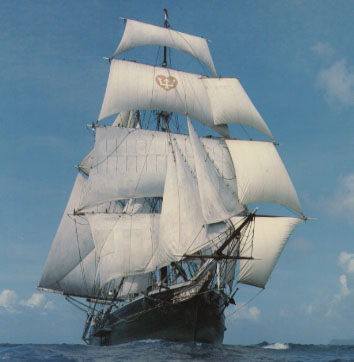The compass is a remarkable instrument. Read about the history of the magnetic compass in this blog.
archive
Sail Cargo and the SDGs: Goal 16 & 17
This is the final blog in the Sail Cargo and SDGs series! This blog will look at how sail cargo meets Goal 16 Peace, Justice and Strong Institutions and Goal 17 Partnership for the Goals.
Eliminating fossil fuels onboard the EcoClipper500 Prototype
EcoClipper ships are designed to be fossil-fuel free. This creates some exciting challenges for providing power onboard the ship and the EcoClipper Tech team invited a group of experts to discuss sustainable options.
Sail cargo and the SDGs: Goal 11 & Goal 15
In this series, the sail cargo industry is looked at through the framework of the Sustainable Development Goals. This week: Goal 11 – Sustainable Cities and Goal 15 – Communities & Life on Land.
Sail cargo and the SDGs: Goal 5 & Goal 10
Sail cargo encourages the growth of small scale, local producers and suppliers, as opposed to large scale, multinational corporate systems.
Clipper Ship Cards: Hidden gems of the 19th Century
Advertising for the operation of clipper ships, fastest vessels operating in maritime trade, took the form of unique clipper ship cards.
Press release: Sail Cargo Webinar Series.
Comprehensive Series of Five Webinars Presenting Backgrounds, Experiences and Economic Conditions for the Emerging Sail Cargo Industry.
EcoClipper – żaglowiec XXI wieku, który ma szansę zmienić oblicze morskiego transportu
Żaglowce zniknęły ze szlaków handlowych, ustępując miejsca statkom parowym, a w końcu także współczesnym wielkim jednostkom pływającym. Mają jednak szansę na nie powrócić za sprawą projektu EcoClipper, który widzi w nich niskoemisyjny środek zrównoważonego transportu.
EcoClipper duurzame start-up
Zowel voor vracht, passagiers als trainees en dan ook nog op vier verschillende routes, worden marktanalyses gemaakt. Er is een onderzoek gedaan naar de waardeontwikkeling en afschrijving van zeilschepen ten opzichte van motorschepen.
Recent posts

Sailing is our only option!
Or the inconvenient truth, about the consequences of not switching back to world transport, by Sail power alone?

The Practice of Sail-Training
We can see the usefulness of the sailing ship in regards to learning seamanship, self-reliance and teamwork. The popularity of these ships and their historical importance is undisputed. The lessons learned from thousands of years of maritime history are passed down from one crew to the next.

Scrubbers: sweeping emissions under the carpet.
By redirecting our pollution from the atmosphere to the sea we are giving ourselves clearer air to breathe, but poisoning the life that makes that air breathable. We have already seen a rise in the acidification of the oceans, caused by the burden of our emissions.